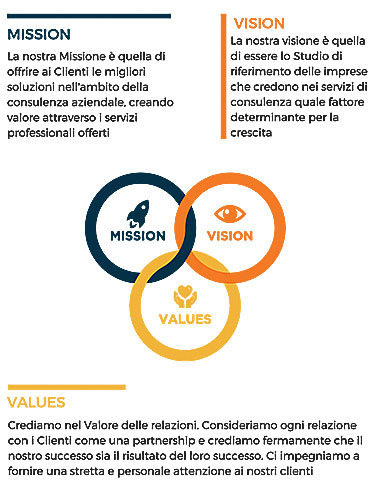Assistenza contabile e consulenza fiscale per società con sede a Dubai - UAE
Grazie ad una partnership con lo Studio Corbello offriamo la possibilità ai nostri clienti di spingersi all'estero aggiungendo ai propri mercati quello degli Emirati Arabi.
Dopo aver pianificato e condiviso la struttura e la finalità dell’operazione, accompagniamo non solo i nostri Clienti lungo l’intero percorso di sviluppo o di insediamento, ma anche nella fase successiva, nella costante ricerca di soluzioni che possano favorire il successo. I nostri Clienti durante la loro presenza negli Emirati sono costantemente assistiti da professionisti (avvocati e consulenti aziendali di lingua italiana, con notevole esperienza e relazioni locali) durante tutti gli incontri sia inerenti al business, laddove richiesto, sia nella fase di costituzione del soggetto giuridico riconosciuto dalle Leggi locali che in quella di richiesta e rilascio delle licenze.
Grazie a una vasta rete di contatti, guidiamo, forniamo assistenza su tutti gli aspetti che accompagnano le decisioni aziendali da assumere per individuare le migliori opportunità di investimento e sviluppo. Il nostro team si compone di professionisti multilingue (italiano, inglese e arabo) con una profonda conoscenza del mercato, della legislazione emiratina, con solide relazioni locali e una forte attitudine operativa. Siamo convinti che oggi tutte le imprese, anche quelle di piccole e medie dimensioni, che aspirino alla competitività, sono obbligate a ricercare nuovi mercati di sbocco per i propri prodotti o servizi. L’internazionalizzazione deve essere vissuta come una fase importante e complessa, che richiede, con la dovuta gradualità, un effettivo progetto di cambiamento della cultura economica d’impresa.
Dalla progettazione alla realizzazione dell’idea imprenditoriale, possediamo competenze, risorse e conoscenze per garantire il successo ai nostri clienti.

Retirement & College Saving
Life is a constant juggling act. Every day we juggle tasks, time, people and goals. This is especially true when it comes to balancing financial goals, whereby time is not the scarce resource, but money is. The future can seem especially daunting for young families balancing retirement funding goals and college planning for their children.
College expenses are traditionally paid from one of several sources: parent’s current income, financial aid/scholarships/grants, and parent’s personal savings. Over the past several years, however, a proliferation of college savings programs have been introduced including prepaid tuition programs, which are a real escape for those parents looking for additional ways to save money on college for their children.
Nine out of 10 parents believe their children will attend college, and since college typically arrives before retirement, the majority of parents feel like they should put money toward that first and save for retirement after. In fact, 49% of parents are willing to delay their own retirements to pay for their children’s education, while others feel guilty they won’t provide more financial assistance. Financial Advisor can help you with both.

Business Owners
Managing taxes
As your goals and financial situation change, there may be new opportunities to reduce your taxable income. I`ll help you find them.
Retirement plans and other employee benefits
The right retirement plan can provide tax benefits and help you attract and keep high-quality employees. I`ll help you find it.
Business valuation
Your business is important to you, but do you know how much it's really worth? I'll develop a clear picture of your business's value and integrate it with your personal financial situation - so you'll have the comprehensive view you need to plan for a successful future.
Business succession planning
How will you transfer your business when it's time to move on? I`ll help you plan for a smooth transition.

Insurance & Annuities
Annuities are financial tools that can be used for receiving potential guaranteed income in retirement. Various types of annuities let you choose which benefits matter most and how often you are paid. All are tax-friendly, meaning you don't pay taxes on them until you receive your annuity or income payments, which are usually when you're in retirement and could be taxed at a lower rate. I offer a variety of solutions from leading financial service providers, so you have many options when deciding what type of annuity is right for you, your company or your family.
How Annuities Work:
Learning more about annuities can help you understand what options are available to you. As a certified financial advisor, I can answer questions you have about various features annuities and insurance. For example, an annuity is a contract between you and an insurance company. They invest your money and provide a regular source of income that you can receive a paycheck for life, depending on the contract selections you make.

Cash & Credit
In my investment advisory programs, you generally pay an asset based fee, charged quarterly in advance, based on the total value of the assets in your account at the end of the previous quarter. Unless otherwise noted, the asset-based fee generally covers investment consulting and certain brokerage services provided by Financial Advisor, as well as the external or internal investment management fees. However, the asset-based fee does not cover expenses paid within any exchange-traded funds or mutual funds you may own.
You may select from my comprehensive suite of managed account programs, which are designed for various levels of investment experience and sophistication, with asset minimums that start as low as $5,000. Depending upon the program, your investment advisory account may include stocks, bonds, money market funds, mutual funds, exchange-traded funds and cash.

Stock, Bonds & Mutual Funds
If you're parking money in a savings account, that's not going to help you prepare for retirement. Bank accounts, CDs and money market funds may provide safety from loss of principal, but these "cash equivalents" don't boast the higher returns of other investments. Consider the following riskier alternatives.
Also called equities, stocks are the cornerstone to most retirement accounts because they've boasted higher returns than many other investments, clipping along at an average 10 percent a year since 1926, according to Ibbotson Associates. Bonds, however, are considered safer investments than stocks. But that's not always true. It depends on the bond you buy. The riskier the bond, the higher the interest rate.
Mutual funds come in a variety of styles. Some are more risky, others less so, depending on what they're invested in. Index funds are geared to mimic certain indexes (such as the Standard & Poor's 500) and they tend to be more tax-efficient and less costly than, say, managed funds, which also may have sales charges and other expenses.
